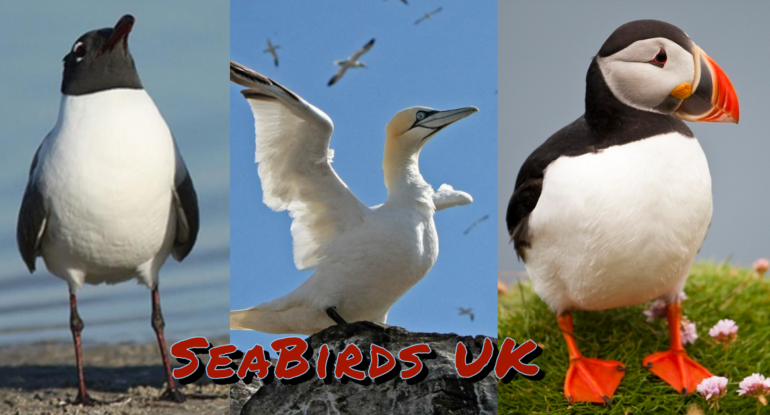UK sea birds Introduction
Sea birds UK are available in all shapes, sizes and hues. Some may be visible year spherical along our shores, whilst other species are migrants, arriving in spring to reproduce for the summer season months, earlier than leaving once more in autumn.
The UK coast is domestic to many unique species, which play a key position within the coastal ecosystems. They rely, immediately and not directly, at the marine and coastal environment. Sea birds UK are often used as bioindicators of marine ecosystems as they’re smooth to discover and survey, and are top predators.
Their presence and abundance can imply the fitness and standing of the habitat and meals chain. In this Pierdom article we going to discuss UK sea birds in detail.
What is seabird?
Seabirds are birds that rely, at the least most of the time, on the sea to continue to exist. Their bodies are adapted to the marine international. Some of the sea birds UK are large and others small a few uncommon and a few commonplace; and some our colourful and showy.
Whilst others have tailored to blend in with their environment. In preferred, seabirds stay longer than different wild birds; most have an average lifespan of 50 years.
Read in detail Wasps UK Guide
Types of Seabirds
There are so many Sea birds and all around the world. They have different length , wingspan and habitat. f you are a professional ornithologist or an amateur, you can customize your own pin. You can combine the bird image with the pin, whether it is a feathered bird, a small and delicate songbird, or a cute bird of prey, each one is full of surprises and fun. They can be attached to your clothing and become a beautiful accessory. You can see more products on Pin Badges Co.
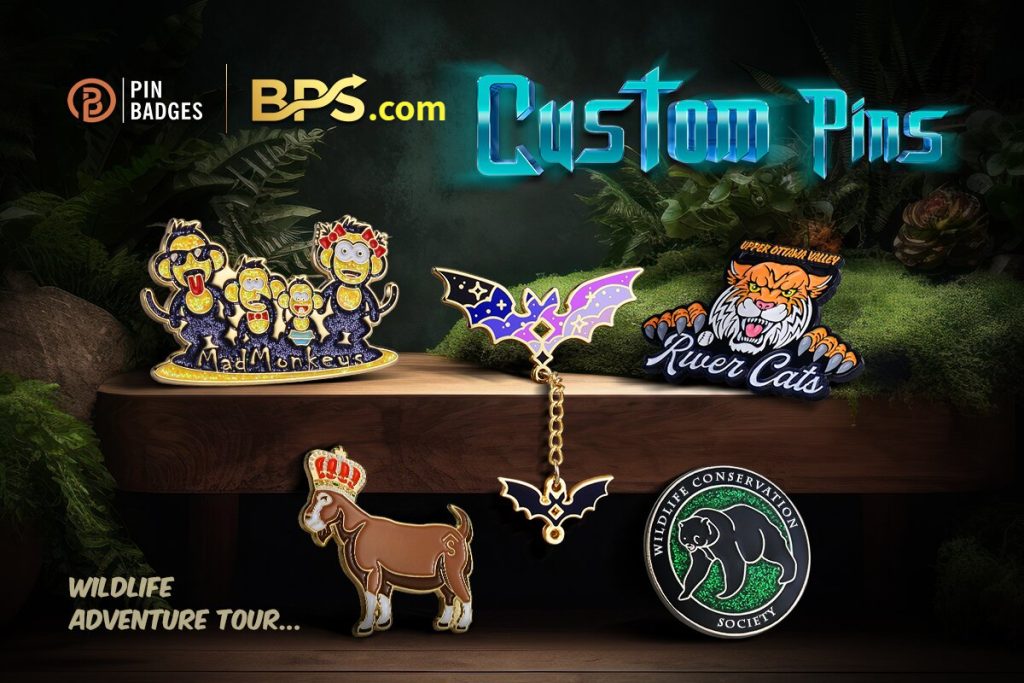
Large seabirds UK
The albatross is an exceedingly large seabird average lifespan up to 50 years. And it has longest wingspan up to 11 feet than other seabirds. Albatrosses use their formidable big wingspans to ride the ocean winds and sometimes to glide for hours without rest. They rarely seen on land only gathered when need to breed. They mostly eat squid and small fishes. Albatross UK seabird you can find in Yorkshire.
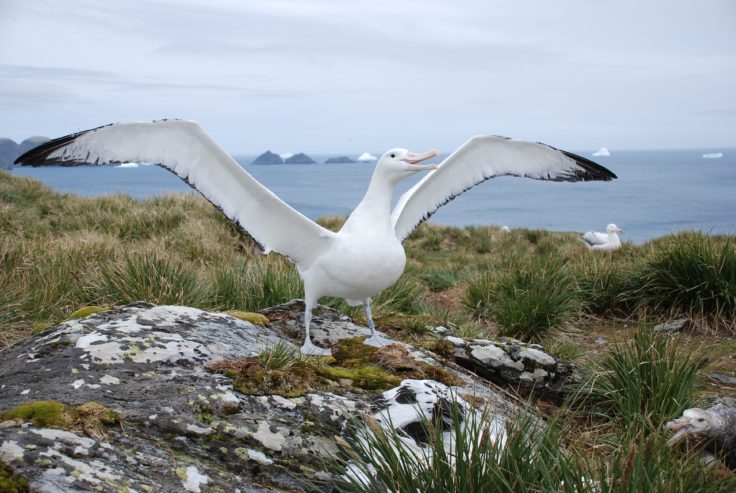
Small sea birds UK
The Storm petrel are the smallest sea bird than all. They are little bigger than sparrow with black and white body. Small sea birds mostly nest among rocks or in burrows on small offshore islands.
They sing at night a delightfully bizarre purring sound, mixed with occasional grunts and squeaks. Their wingspan is 36 to 39cm. The storm petrel Sea bird UK breeds largely on islands on the west coast of the UK.
Read a detail guide on Best Beaches in the UK
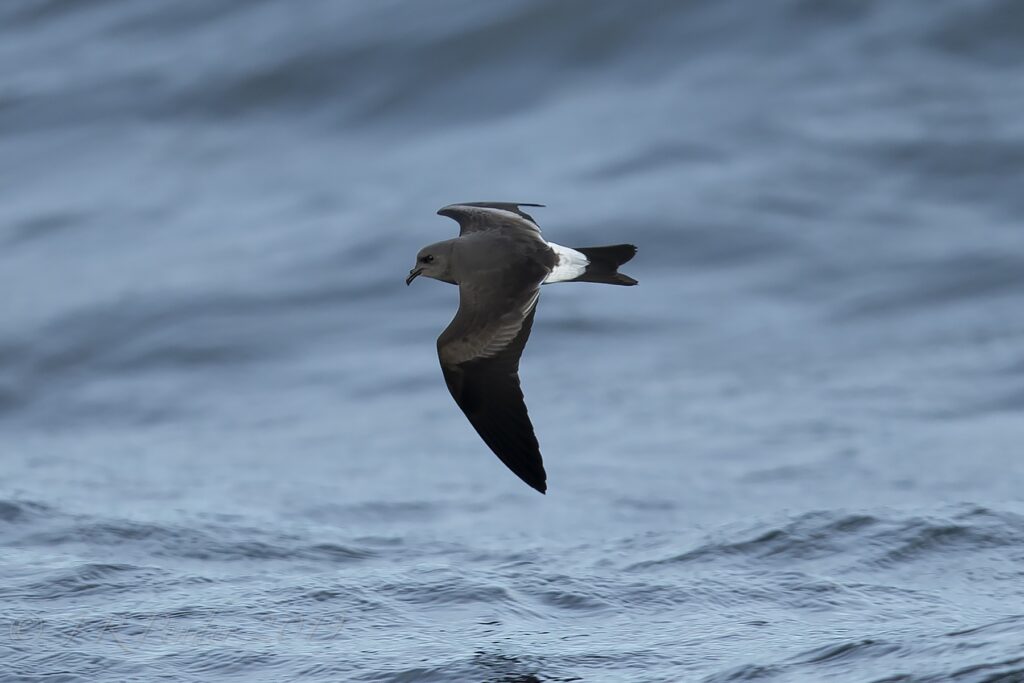
Black sea birds UK
The Cormorant is the black sea bird than all. It is often seen standing with its wings held out to dry. Their are two types of Cormorant species found in UK. The Cormorant and The Shag. The cormorant has a stouter more powerful beak than the shag. The shag’s beak is more delicate in comparison to the cormorant. Their Wingspan is 130-160cm.
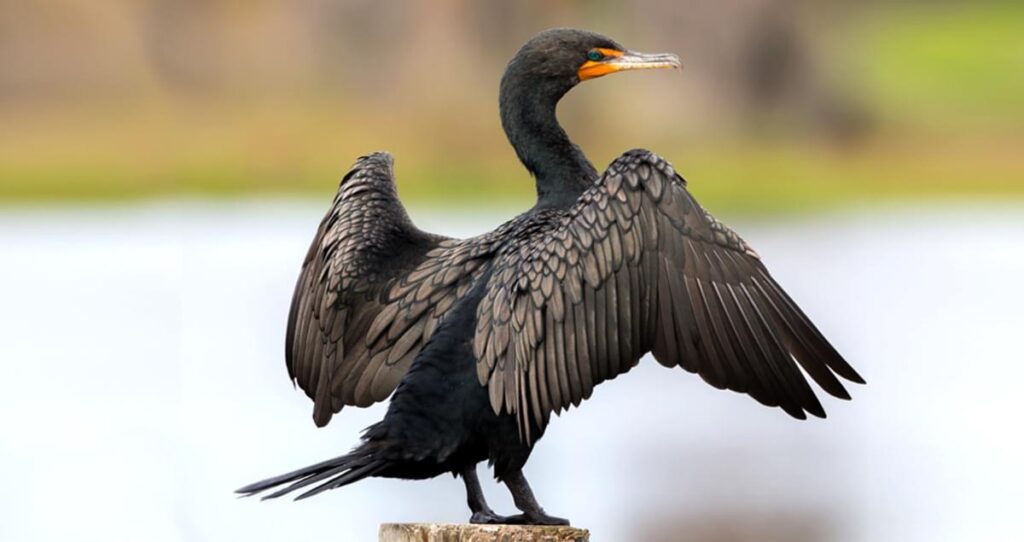
White UK sea birds
The Gannet is considered to to white sea bird than all. They are large and bright white with black wingtips. They flap at sea and then glide low over the water. Mostly the Gannets arrive at their colonies from January onwards foe breeding . Non breeding white seabirds Gannet can be seen at any time around the coasts.
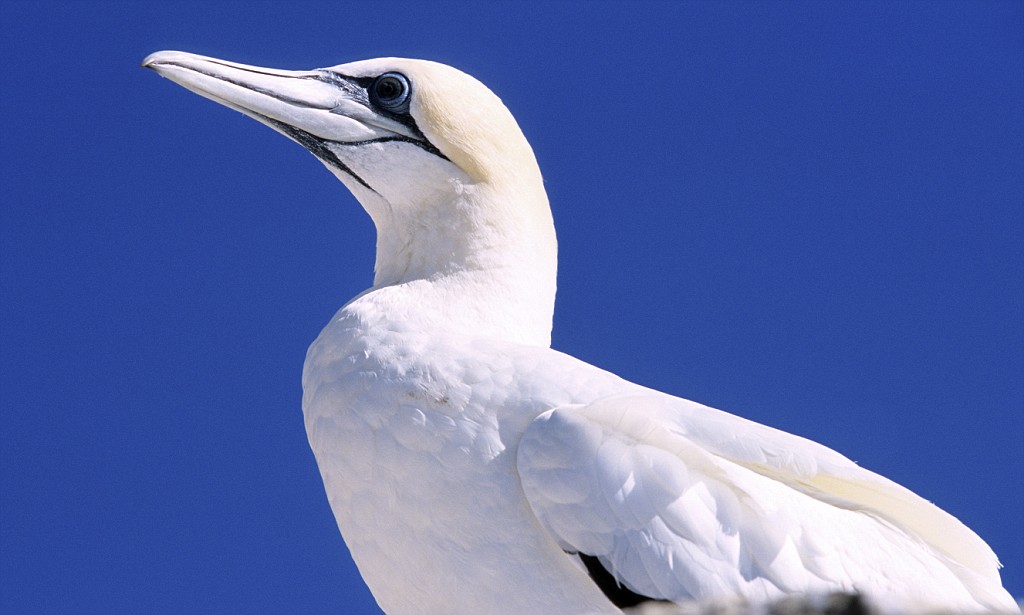
How to Identify Sea birds UK
Most sea birds UK are available diverse mixtures of black, white and grey at the same time as skuas and juvenile gulls are brown. Colour is reserved for beaks and ft .
Different businesses can be advised aside by means of frame shape and flight traits however for closely related species we have to search for greater subtle variations. Common and Arctic terns both have crimson beaks, however the common tern’s beak has a black tip.
The Good time to See seabirds UK
Sea birds UK may be visible at some stage in the year alongside Britain’s coastlines – but at positive instances of the 12 months the variety of both species and individuals is substantially better.
In June, maximum sea birds UK chicks are feeding, making it the quality month to view a number of our favourite species, consisting of puffins, gannets, shags, cormorants, kittiwakes, terns, guillemots, razorbills, eiders and gulls.
Article on Northern Ireland National Animal
The Best places to See sea birds UK
1. St Kilda, Outer Hebrides
2. Portmuck, County Antrim
3. Bass Rock, East Lothian
4. Farne Islands, Northumberland
5. Skomer Island, Pembrokeshire
6. St Abb’s Head, Berwickshire
7. Lunga, Inner Hebrides
8. Flamborough Head, Yorkshire
The effects of climate change on Seabirds
UK seas need to be a spring haven for puffins and other seabirds however as climate exchange warms our waters, they are struggling to continue to exist. Storms are a danger they face often, but food shortages in our seas are becoming a everyday occurrence.
Our seabirds UK are already being stricken by climate trade – inside the North Sea, the temperature has risen by means of 1C in just 25 years.
UK Sea birds that follow ships
The Sea birds UK mostly feed squid, small fishes and snails and some time human left over food too. They always gather in groups on the sea for searching food. Some of the clever UK Sea birds that follow ships. Because when the ship sails forward it encounters generates strong upward air currents and lots of waves.
The small fishes and even left over food seabirds can easily sea on the ships. that’s why most of the sea birds follow ships for food.
List of sea birds UK
| N0. | Sea birds UK names | Length | Weight | Wingspan | Physical Characteristics: |
| 1. | Little tern | 22-24cm | 49-63g | 48-55cm | 1. This delightful chattering seabird is the UK’s smallest tern. 2. It is short-tailed and has a fast flight. 3. Its bill is a distinctive yellow with a black tip. |
| 2. | Great black-backed gull | 64-78cm | 1-2kg | 150-165cm | 1. A very large, thick-set black-backed gull, with a powerful beak. 2. Adults are blacker than the smaller lesser black-backed gull. 3. It has a heavy flight and can look quite hunched when perched. |
| 3. | Black guillemot | 30-32cm | 300-460g | 52-58cm | 1. The black guillemot’s striking black and white. 2. Black guillemot has bright red feet make it easy to identify in summer. |
| 4. | Great skua | 53-58 cm | 1.2-2 kg | 125-140 cm | 1. Great skua has black brown and touch of white feather. 2. They have black feet. 3. Beak are black medium length powerful and chunky. |
| 5. | Common tern | 31-38 cm | 93-200 g | 75-80 cm | 1. Common Terns are pale grey overall with a black cap. 2. They also have an orange bill tipped in black and orange legs. 3. They also have a black bar across the shoulder known as a carpal bar. |
| 6. | Shag | 65-80cm | 1.75-2.25kg | 90-105cm | 1. The shag’s beak is more delicate in comparison to the cormorant’s and the forehead angle. 2. Shags are goose-sized dark long-necked birds. 3. Shags usually stay within 100-200km of their breeding grounds. |
| 7. | Manx shearwater | 30-38 cm | 350-450 g | 76-82 cm | 1. Medium-sized; dark-coloration. 2. Tube-nosed ending with a sharp. 3. slender, hooked bill. |
| 8. | Northern gannet | 93.5-110 cm | 2470-3470 g | 180-184 cm | 1. Buff-tinged heads. 2. Sharp bill, pointed tail, and long slender wings with white plumage and black wingtips. |
| 9. | Fulmar | 45-50cm | 610-1,000g | 1-1.12m | 1. Heavyset, medium-sized seabird with a short neck, stout body, large head, and long wings. 2. Bill is stout and hooked, with two nasal tubes on the top edge. 3. Colour is primarily grey on the wings with white undersides, similar to large gulls. |
| 10. | Black-legged Kittiwake | 38-41 cm | 305-525 g | 94 cm | 1. The kittiwake is a small marine gull with a rounded head. 2. Plump belly, slim, tapered wings, and short legs and tail. 3. The small bill is yellow, and the legs and feet are black. |
| 11. | Razorbill | 38-43cm | 590-730g | 60-69 cm | 1. Razorbills are superficially similar to guillemot. 2. Black on their wings, back, head and tail and white underneath. 3. The razorbills has deep thick-set blunt bill while guillemot has a longer slim bill. |
| 12. | Guillemot | 38-45cm | 850-1,130 g | 64-73cm | 1.Usually grey or white, often with black markings on the head or wings. 2. Stout, longish bills; webbed feet |
| 13 | Puffin | 26-29cm | 320-480g | 320-480g | 1. Short, stalking diving bird. 2. Black on its upper sides and white on its chest and belly. 3. Bright orange webbed feet white face and cheeks. 4. Large, triangular bright red and yellow parrot-like bill. |
Seabirds UK names with pictures
Mentioned below are the 13 Sea Birds UK with detail.
1. Little tern Seabird UK
The smallest seabird in the UK. It has short-tailed and fast flight. This bird species has different identifying features depending on sex/age/season. Little terns are a strictly coastal species found around the UK coastline at suitable breeding beaches. The largest colonies are found along the east and south coasts of Scotland and England.
Click to find out more on Piers in Britain
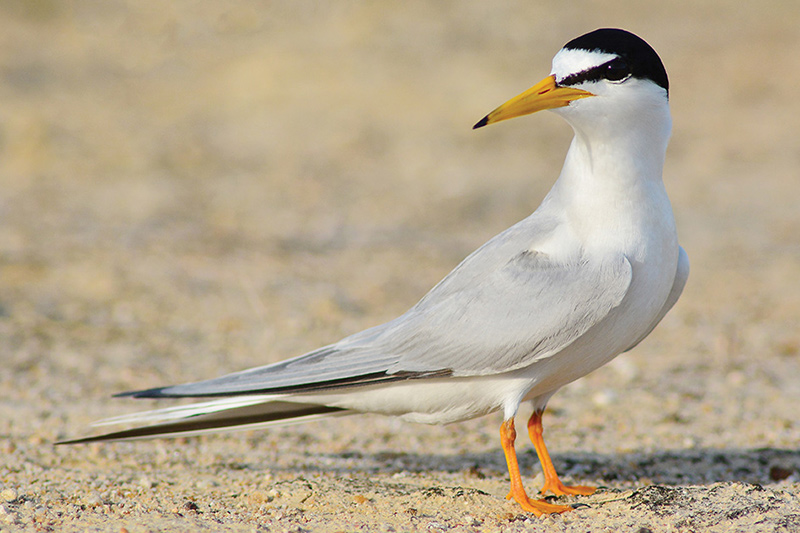
2. Great black-backed gull
It has very large, thick-set black-backed gull, with a powerful beak. It will fight off other gulls and chase them to snatch food. Black backed gull has a heavy flight and can look quite hunched when perched. Great black-backed gulls are found around the coasts in the breeding season. This Seabirds are Omnivorous eats shellfish, birds and carrion.
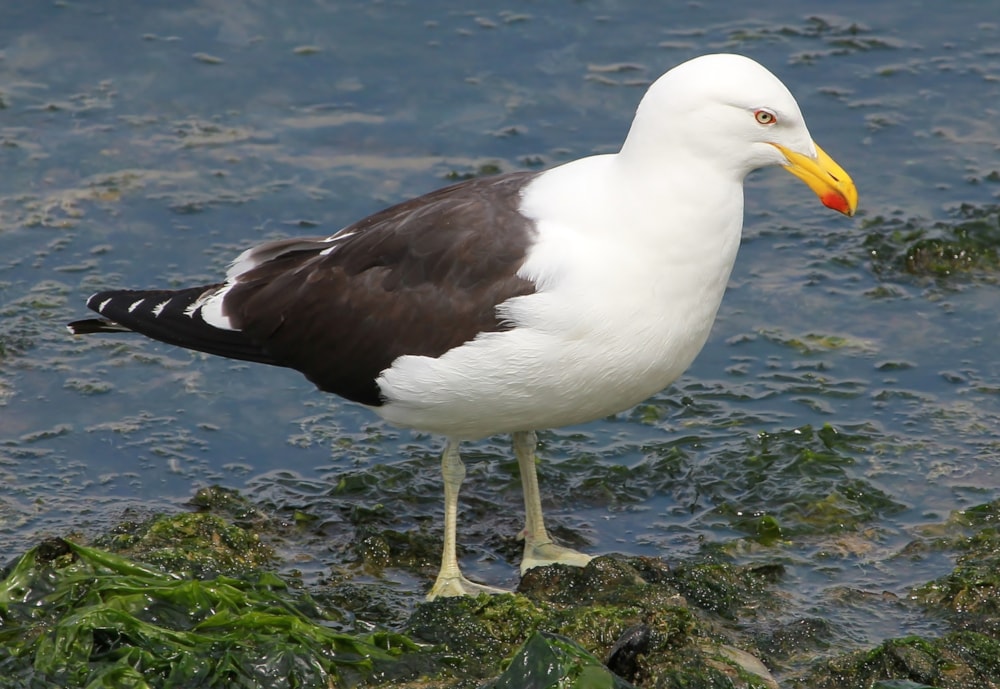
3. Black guillemot UK Seabird
The guillemot is one of the most numerous birds in the great ‘seabird cities’. It comes to land only to nest, spending the rest of its life at sea. Guillemot are found on small areas of cliffs on the south coast of England, very locally on the coasts and islands of Wales. In winter it is widespread around UK coasts but usually well offshore. It is sometimes seen inshore after gales or passing by longer headlands.
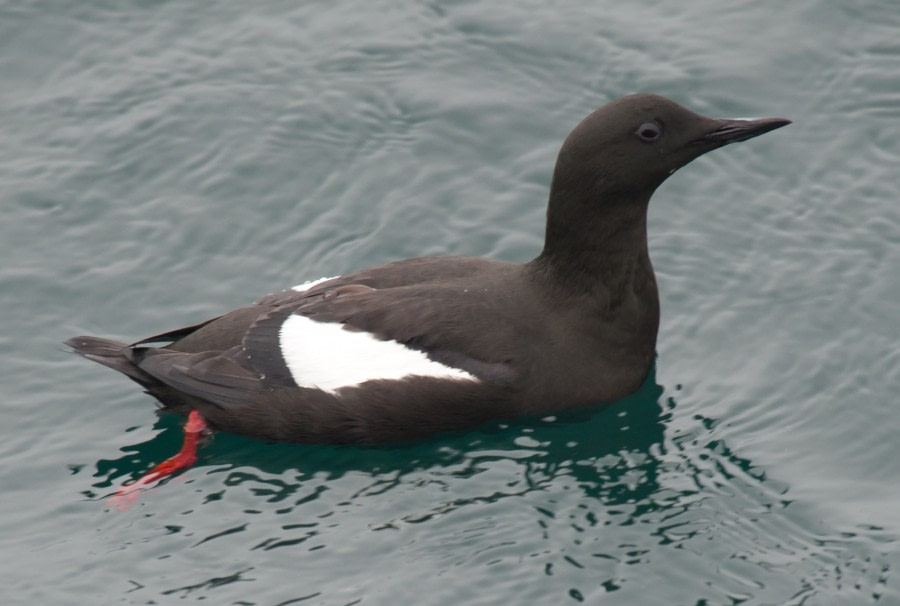
4. Great skua
The great skua is an aggressive pirate of the seas, deliberately harassing birds as large as gannets to steal a free meal. These birds migrate to the northernmost isles of the UK from their wintering grounds off the coasts of Spain and Africa. These sea bird UK Great skua can be seen in breeding areas on coastal rocky islands and moorland.
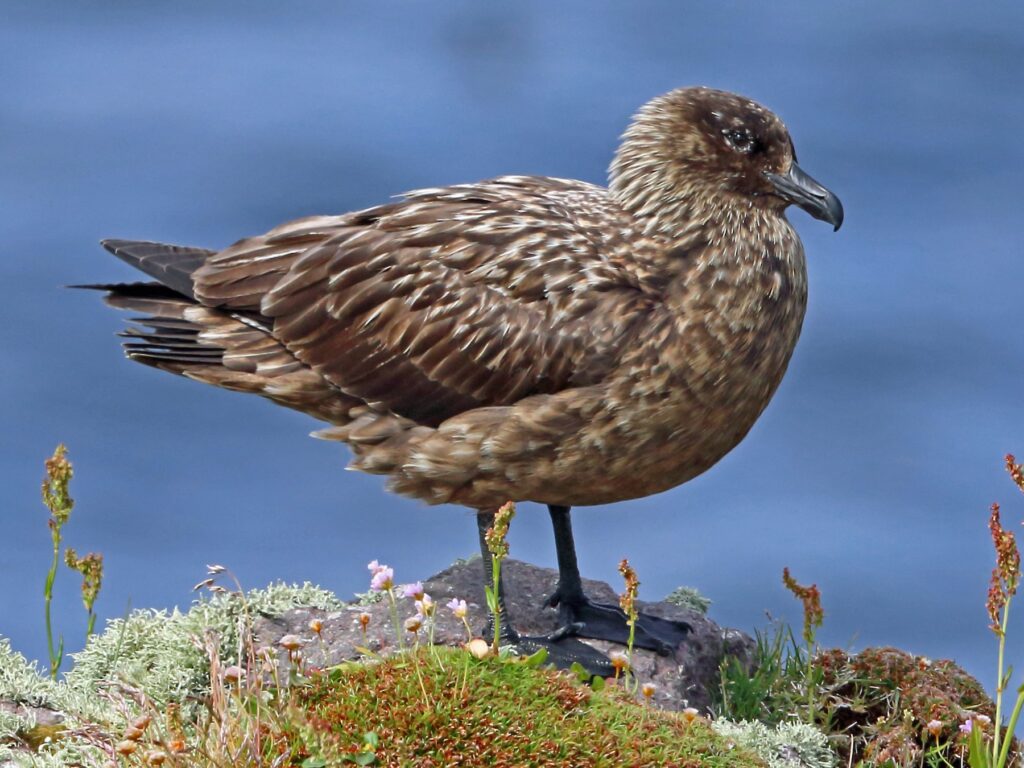
5. UK Sea bird Common tern
The Common Terns gracefully fly through the sky showing off their long angular wings. This is the most widespread tern in North America. They can easily drink saltwater or freshwater. They are also called a social birds.
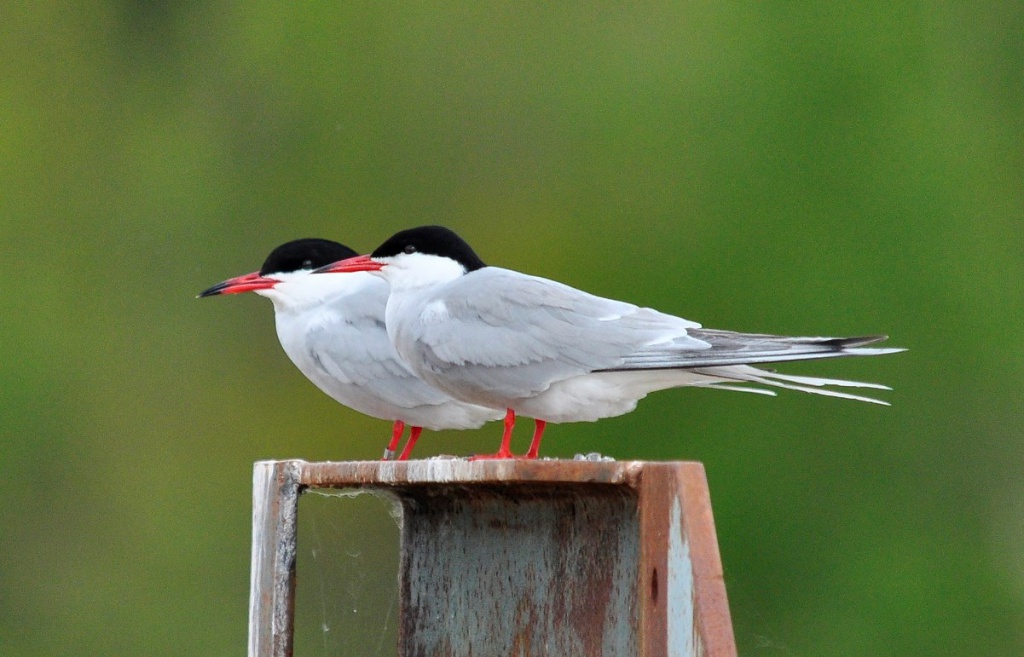
6. The Shag
They are smaller, blacker, extra seagoing relative of the cormorant with an emerald eye and a greenish sheen to its plumage. The Shag nests some of the colonies of other seabirds. The phrase ‘shag’ is an ancient phrase for ‘tufted’ and refers to the bird’s crest.
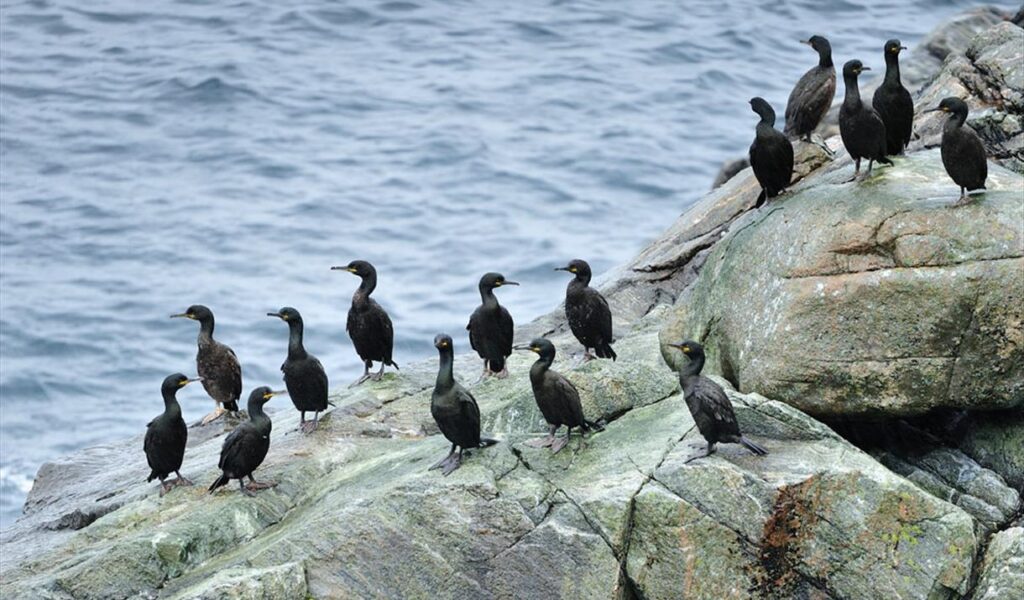
7. Manx shearwater
These seabirds glides low over the water. This dark, stiff-winged ocean wanderer makes the most of every uplift from the waves underneath. Vulnerable on land, so it returns to its nesting burrows below the duvet of darkness to keep away from a mess of predators.
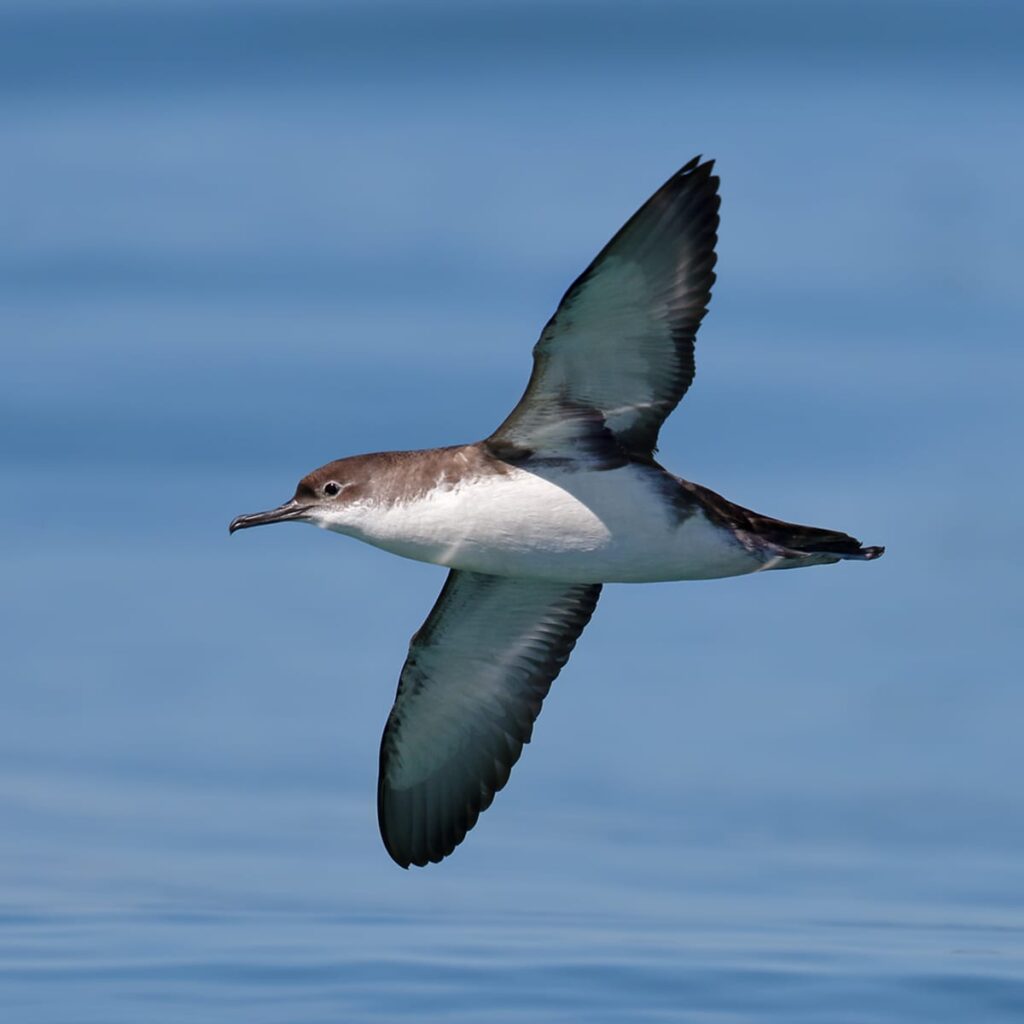
8. Northern gannet
A almost albatross-sized, heavy-bodied seabird, with long, pointed wings, tail, and invoice. Adults Gannet are snow white with black wingtips and yellow heads. Northern Gannets fly with deep, gradual wingbeats as they search for fish. They nest on oceanside cliffs. These Sea birds UK are larger than a Great Black-backed Gull, smaller than a Brown Pelican.
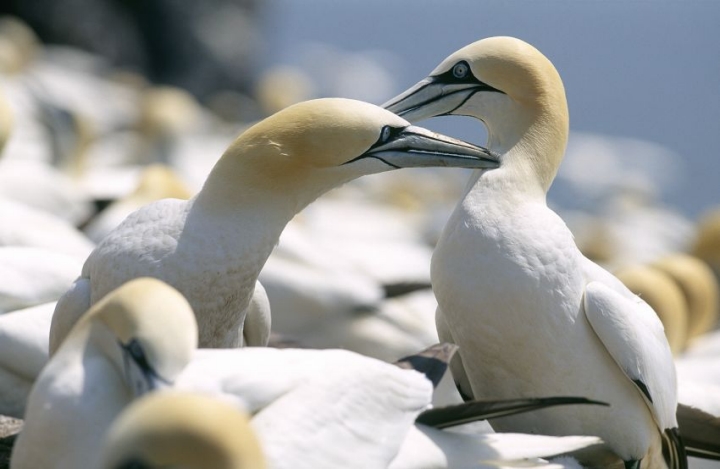
9. Fulmar UK Seabird
They are almost gull-like, this grey and white seabird UK is related to the albatrosses. The fulmar flies low over the ocean on stiff wings, with shallow wingbeats. They will feed in flocks out at sea. The fulmar is constantly offshore, except whilst breeding. They shield their nests from intruders by spitting out a foul-smelling oil.
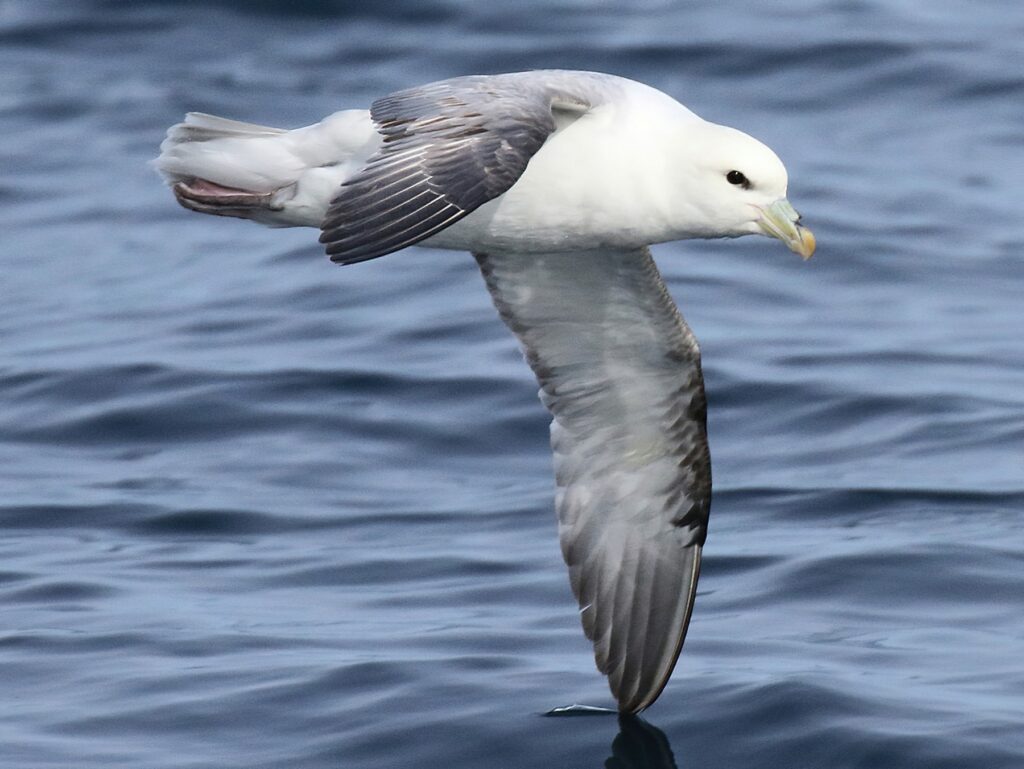
10. Black-legged Kittiwake
The Kittiwake are delicate gull with snow-white plumage and grey higher wings with black tips. All species of Kittiwakes look sleek in flight, with narrow wings, a short, notched tail, and a slim, fairly short bill. They also have a grey and black collar across the back of the neck.
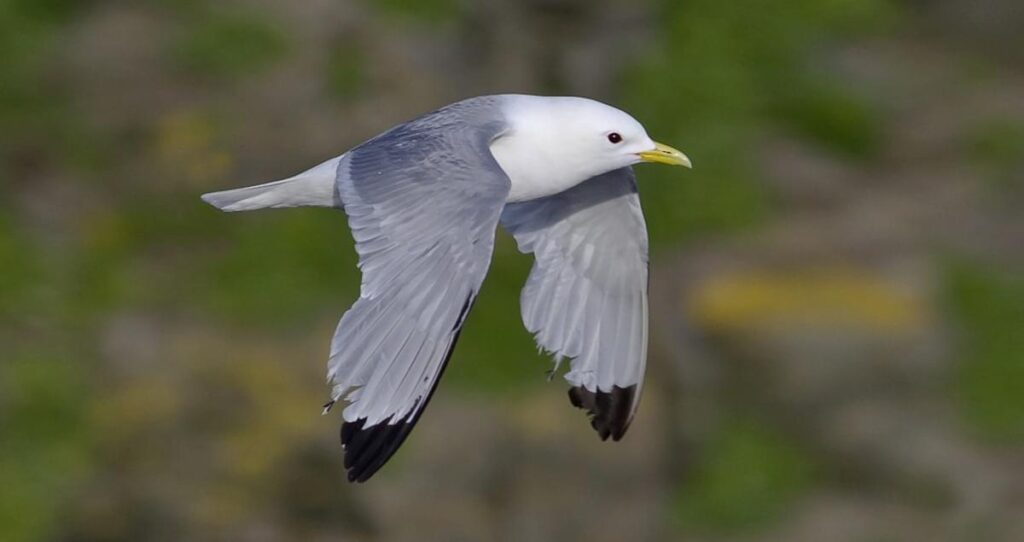
11. Razorbill Sea Bird UK
The razorbill has thick, black bill, with a white stripe across it. They feed fishes which is catches by diving from the surface and swimming underwater. These seabirds are usually search fishes in the upper 20 metres of the sea. They are similar to look like guillemot.
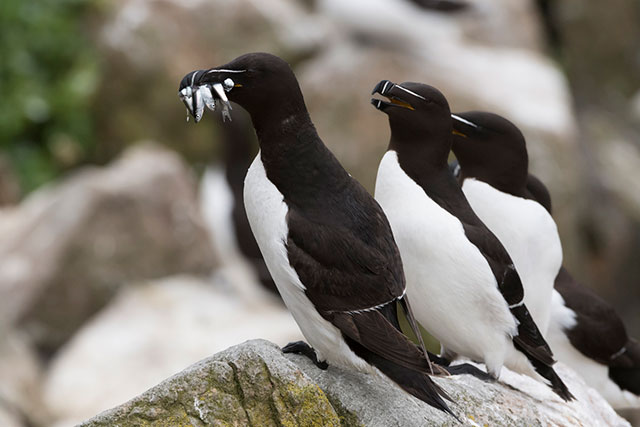
12. Guillemot Sea Bird UK
The Guillemot are maximum numerous inhabitant of UK seabird towns, nesting on the tightest ledges. Dapper dark-chocolate-brown and white plumage. The smaller, scarcer black guillemot has handiest small patches of white on its wings, and scarlet legs.
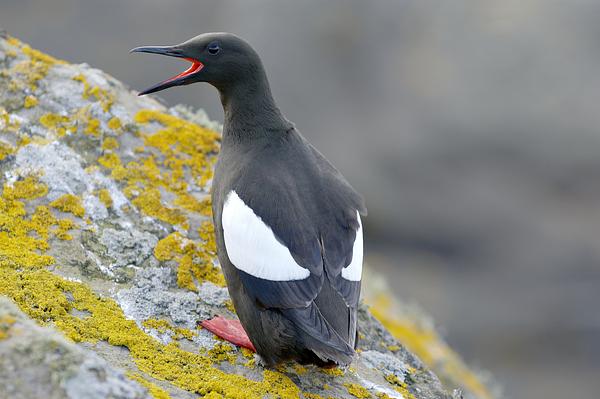
13. Puffin
Puffins are beautiful seabirds with their black back and white underparts and distinctive black head with large pale cheeks. They have tall, flattened and brightly colour bill. This is one of the world’s favourite birds among all seabirds.
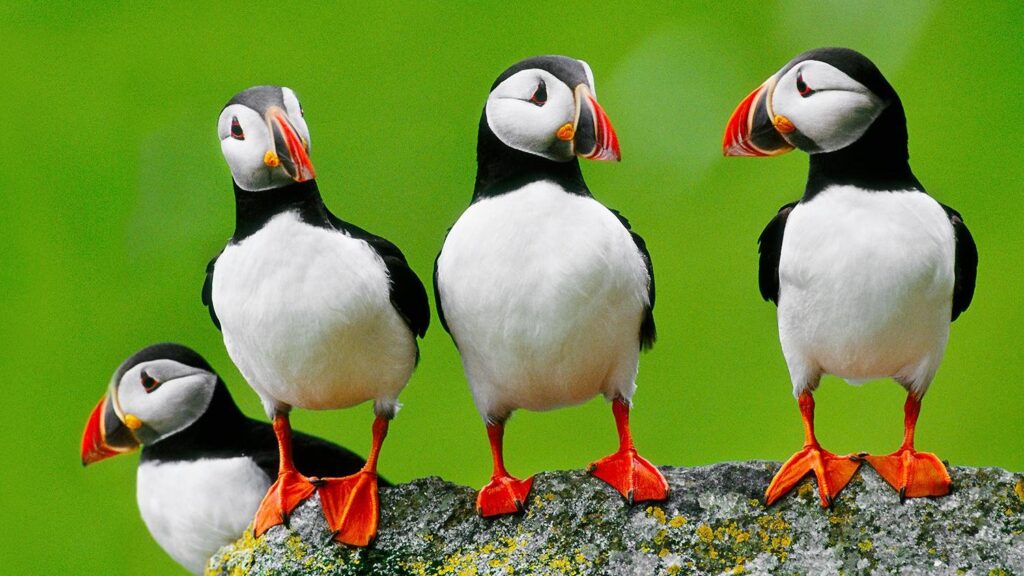
UK sea birds Conclusion
There are dozens of sea birds UK species to appearance out for, every with their own set of precise traits and behaviour styles. Our manual to seabirds discovered inside the UK consists of some of the most abundant species and the satisfactory locations to peer them.
Mostly the seabirds live longer, breed later and have fewer young than other birds. Sea birds UK have numerous adaptations to living on and feeding in the sea. They are always human friendly. The seabirds life history are totally different from other land birds.
Sea birds UK FAQs
Q1. What is the most common seabirds?
The most common sea bird among all seabirds are The Gull.
Q2. Which is the largest seabird among all sea birds UK?
The albatross is the largest seabird among all sea birds UK. Their average lifespan up to 50 years. They rarely seen on land only gathered when need to breed. They mostly eat squid and small fishes.
Q3. What kind of birds sit in the ocean?
The pelicans , gulls and terns are true seabirds and usually sit in the ocean.
Q4. Why sea birds follow ships ?
The all sea birds have very good eyesight. They can easily see small fishes and leftover food on boats and ships. That’s why they follow ships.
Q5. What is the smallest seabird in UK?
The little tern is the UK smallest Seabird. Its bill is a distinctive yellow with a black tip

